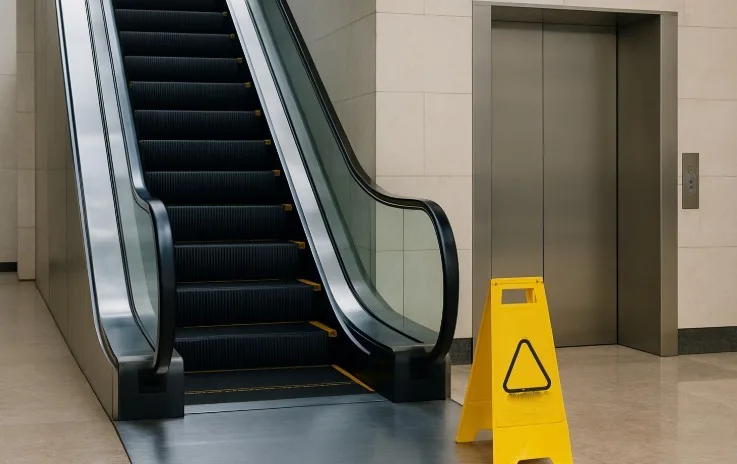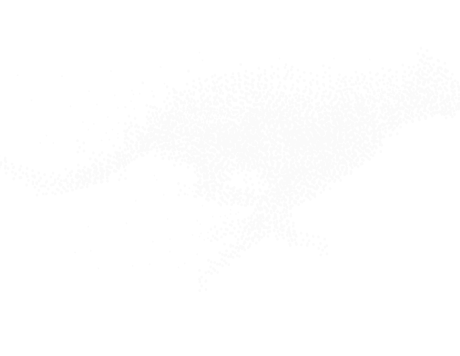At Gould Injury Law, we see how quickly an everyday ride can turn dangerous when elevator malfunctions cause sudden drops, mislevels, door strikes, or jerking stops. Elevator accidents can lead to serious head, back, and orthopedic injuries, and the path to recovery often runs through a premises liability claim against property owners, property managers, and sometimes maintenance companies or manufacturers. If you or a loved one suffered injuries in an elevator accident, our personal injury attorneys can help you understand liability, gather evidence, and seek compensation for medical expenses, lost income, and more.

Why Elevator and Escalator Accidents Occur
Modern elevator systems rely on complex mechanics, electronics, and safety devices. When building owners cut corners or maintenance companies miss problems during routine inspections, passengers pay the price. Common causes include:
- Poor maintenance: worn cables, faulty brakes, or ignored error codes
- Electrical failures: control boards, relay issues, or sensor malfunction
- Door hazards: elevator doors closing too fast or failing to re-open on obstruction
- Misleveling: car fails to line up with floor, creating a tripping lip
- Sudden stops/starts: abrupt motion that throws riders to the floor or into elevator walls
- Defective elevator parts: manufacturing/design defects (a potential product liability angle)
When these failures occur, accidents happen—and property owners who neglect maintenance can be held liable for resulting injuries.
Who Can Be Liable After an Elevator Accident?
Elevator cases often involve multiple parties. Your premises liability attorney will determine liability by investigating the role each entity played:
- Property owner / property manager
- Primary duty to keep the premises reasonably safe and ensure proper safety protocols are followed, including elevator inspections and timely necessary repairs.
- May be liable for inadequate maintenance, failure to respond to complaints, or ignoring safety violations.
- Primary duty to keep the premises reasonably safe and ensure proper safety protocols are followed, including elevator inspections and timely necessary repairs.
- Elevator maintenance company
- Contracted to maintain and repair the system.
- Liable if incomplete inspections, skipped service, or negligent repairs caused the elevator malfunction.
- Contracted to maintain and repair the system.
- Manufacturer / component suppliers
- Other responsible parties
- Construction or modernization contractors if improper installation led to the failure.
- Construction or modernization contractors if improper installation led to the failure.
Your claim may name multiple parties to ensure you can pursue maximum compensation from all responsible parties.
The Property Owner’s Duty (and How Breaches Happen)
Under premises liability principles, property owners and managers must keep elevators in a safe environment for tenants and visitors. Breaches often look like:
- Skipping routine inspections or using unqualified personnel
- Failing to take a car out of service after repeated complaints
- Ignoring inspection reports that flag urgent safety issues
- Allowing elevator malfunctions (like misleveling or door strikes) to continue without repair
- Poor recordkeeping that masks chronic problems
When property owners fail to uphold their duty and an elevator accident occurs, they can be held accountable through a premises liability lawsuit.
Common Elevator Accident Injuries
Elevator and escalator incidents cause serious injuries that may require extended treatment and medical records to document damages:
- Head injuries and concussions from impacts with walls/doors
- Back and spinal injuries from sudden stops or drops
- Broken bones and joint injuries from falls due to misleveling
- Lacerations/crush injuries from malfunctioning doors
- Emotional distress and anxiety about riding again
In severe cases, injuries can result in surgeries, long rehab, and diminished earning capacity.
Building a Strong Premises Liability Claim
Winning premises liability claims for elevator malfunctions depends on timely action and detailed evidence. Your personal injury attorney will gather evidence such as:
- Maintenance records and inspection reports (to show missed service or known defects)
- Service contracts between the property and the maintenance company
- Prior complaints or incident logs showing actual notice of problems
- Surveillance footage from lobbies and cabs (entry/exit, door behavior, mislevel)
- Witness statements and witness contact information
- Expert analysis of mechanical and control systems
- Complete medical records linking the mechanism of injury to the malfunction
Together, this helps prove liability and support your damages.
What To Do Right After an Elevator Accident
Your steps immediately after an incident can make or break your elevator accident claim:
- Get medical attention quickly. Even if you think you’re okay, symptoms often worsen.
- Report the incident to building management and ask for a written incident number or report.
- Document the scene: photos/video of the car position, misleveling, stuck doors, alarms, and any posted outage notices.
- Collect witness contact information from other riders, security, or staff.
- Preserve your clothing/shoes (useful in misleveling trip claims).
- Call a personal injury lawyer before speaking with an insurance company.
Prompt legal help ensures we can preserve critical evidence (like digital controller logs) before it’s overwritten.
Proving Negligence: The Four Elements
To recover, your premises liability lawyer will establish:
- Duty: The property owner and others owed you a duty of care.
- Breach: Poor maintenance, ignored warnings, or safety violations breached that duty.
- Causation: The breach caused the elevator accident injuries.
- Damages: You suffered compensable losses—medical bills, lost income, pain and suffering, etc.
In some cases, product liability laws allow claims against manufacturers for defective components that contributed to the failure.
Common Defenses (and How We Counter Them)
Defendants often try to minimize or deny liability. Typical defenses include:
- “No notice”: Claiming they didn’t know about the defect.
- Counter: Prior complaints, inspection notes, or patterns of failure show actual or constructive notice.
- Counter: Prior complaints, inspection notes, or patterns of failure show actual or constructive notice.
- “It was unforeseeable”: A sudden, unavoidable malfunction.
- Counter: Regular logs reveal long-standing issues, skipped service, or ignored errors.
- Counter: Regular logs reveal long-standing issues, skipped service, or ignored errors.
- Comparative negligence: Alleging rider behavior caused the fall.
- Counter: Misleveling and door malfunctions are building hazards; user blame is often a stretch without supporting evidence.
- Counter: Misleveling and door malfunctions are building hazards; user blame is often a stretch without supporting evidence.
A thorough investigation and rapid evidence preservation are key to overcoming these tactics.
Damages You Can Pursue
Elevator accident victims may claim:
- Medical expenses (ER, imaging, surgery, rehab)
- Future medical costs and long-term care
- Lost income and reduced earning capacity
- Pain and suffering and emotional distress
- Out-of-pocket expenses (transport, home modifications)
- In rare cases, punitive damages (if conduct was egregious)
Your lawyer’s goal is maximum compensation based on the evidence and your long-term needs.
The Claims Process: What to Expect
- Free consultation & case evaluation – We review facts, injuries, and likely defendants.
- Investigation – Demand preservation of data, obtain maintenance records, interview witnesses, retain experts.
- Claim filing – Submit elevator accident claims to insurers for each responsible party.
- Negotiation – Present liability and damages packages; push for fair compensation.
- Litigation (if needed) – File suit and use discovery to secure full inspection reports, controller logs, and deposition testimony.
- Resolution – Settlement or trial verdict.
Throughout, we handle the legal process so you can focus on healing.
Why Choose Gould Injury Law for Elevator & Escalator Cases
At Gould Injury Law, we act fast to lock down video, logs, and records before they vanish. Our team knows how to identify responsible parties, from property owners and maintenance companies to component makers. We coordinate medical care documentation, calculate financial recovery, and push insurers toward fair compensation—or we take them to court.
Take the Next Step Today
If an elevator accident left you with serious injuries, you don’t have to navigate the aftermath alone. Gould Injury Law can investigate the malfunction, determine liability, and fight to help you receive fair compensation for medical bills, lost income, and the impact on your life.
Call (888) WIN-FAST (888-946-3278) or contact us online to schedule your free consultation. We move quickly—so you can focus on recovery while we handle the rest.
